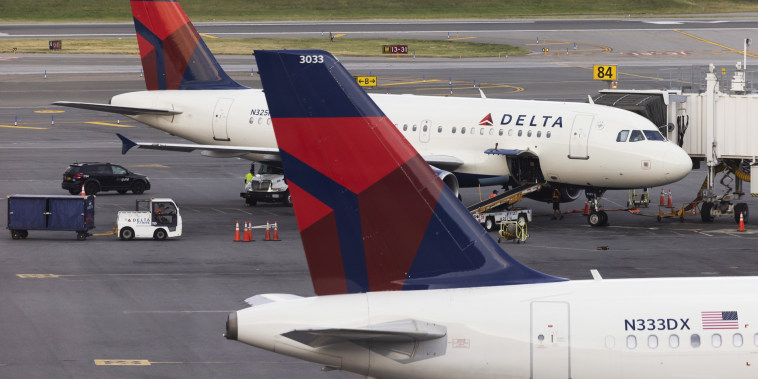Recent strikes by Hollywood talent and United Auto Workers union members are a “drag” on business travel demand, which is otherwise recovering, Delta Air Lines President Glen Hauenstein said Thursday.
Delta has an outsized exposure to the automotive and entertainment industries, with a more than 70% market share at Detroit Metropolitan Wayne County Airport and a nearly 20% share at Los Angeles International Airport, more than any other carrier, according to airport data.
The strikes have had “a not insignificant change in the business travel to and from Los Angeles as well as now the UAW strike, which curtailed a significant amount of the business in Detroit,” Hauenstein said on an earnings call on Thursday. “We are probably the most impacted by those two sectors.”
The United Auto Workers’ targeted strikes, which began after major Detroit automakers and the union failed to reach labor deals before a September contract expiration, are entering their fourth week — and escalating.
Hollywood writers earlier this week ratified a new three-year contract after nearly 150 days of work stoppage that suspended significant film and TV production.
But Hollywood actors, represented by the Screen Actors Guild-American Federation of Television and Radio Artists, are still on strike. And late Wednesday, the Alliance of Motion Picture and Television Producers, which represents production studios like Disney, Universal, Netflix and others, said talks have been been suspended with the two sides far apart on a deal.
Delta’s Hauenstein noted that demand from technology and financial services customers posted double-digit growth in the third quarter, contributing to an overall rebound for business travel.
A company survey of corporate customers found that a majority expect their travel to stay the same or increase in the last three months of this year and into 2024, Hauenstein said.
Disclosure: Comcast is the parent company of NBCUniversal and CNBC. NBCUniversal is a member of the Alliance of Motion Picture and Television Producers.
More from CNBC:
Target CEO to meet with Biden as the company — and White House — try to figure out U.S. consumersAMC CEO identified as victim of an online blackmail attempt last yearChargePoint shares fall after EV charging operator announces $232 million raise

